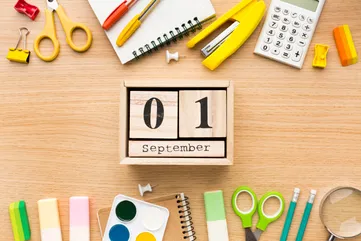Delayed Gratification
Delayed gratification is the ability to resist immediate rewards in favor of larger or more meaningful rewards later, requiring impulse control and future-thinking capacity.
Why delayed gratification challenges teens
The adolescent brain's reward system is hypersensitive while impulse control regions remain underdeveloped, making immediate rewards almost irresistible compared to distant benefits.
Areas requiring delayed gratification:
• Studying now for future grades
• Saving money versus spending
• Healthy choices for long-term benefits
• Building skills that pay off later
• Maintaining relationships despite conflicts
• Working toward distant goals
Modern technology's instant gratification design makes developing this skill even harder.
You're not alone
If your teen can't save money, always procrastinates, or chooses immediate fun over important tasks, they're battling normal developmental challenges. Many parents feel like broken records explaining why future benefits matter more than present pleasure. The teenage brain literally values immediate rewards differently than adult brains. Families successfully building delayed gratification skills report better academic outcomes and reduced impulsive decisions.
What it looks like day to day
Student
Your teen chooses to study for tomorrow's test instead of gaming tonight, connecting present effort to future goals.
Parent
You watch your teen save birthday money for something meaningful rather than spending immediately on small purchases.
Tiny steps to try
Build delayed gratification through gradual practice and visible progress.
- 1
Micro delays
Start with tiny delays. Wait 5 minutes before checking phones. Build tolerance for waiting gradually.
- 2
Visual progress tracking
Use charts or apps showing progress toward goals. [Visual systems](/the-parent-bit/finding-order-in-the-chaos-setting-up-calendars-for-kids) make abstract future rewards concrete.
- 3
Reward bundling
Pair less pleasant tasks with delayed rewards. "After homework, then gaming" creates positive associations.
- 4
Future self letters
Have teens write to their future selves about current sacrifices. Makes future benefits feel more real.
- 5
Celebrate waiting
Acknowledge when your teen delays gratification. "You saved for three weeks! That took serious willpower."
Why this skill predicts success
The famous Stanford Marshmallow Experiment and subsequent research demonstrate that delayed gratification ability predicts academic achievement, SAT scores, career success, and health outcomes better than IQ.
Recent neuroscience reveals that delayed gratification involves complex coordination between brain regions including the prefrontal cortex and limbic system. During adolescence, the limbic system's dominance makes delayed gratification particularly challenging but not impossible. Practice strengthens neural pathways supporting impulse control.
Mischel et al. (2011) found that preschoolers who could delay gratification longer had higher SAT scores, better social skills, and lower substance use rates as adults. Casey et al. (2011) showed that individuals with poor childhood delayed gratification continued showing reduced self-control 40 years later, demonstrating the importance of developing these skills early.
References
Casey, B. J., Somerville, L. H., Gotlib, I. H., Ayduk, O., Franklin, N. T., Askren, M. K., ... & Shoda, Y. (2011). Behavioral and neural correlates of delay of gratification 40 years later. Proceedings of the National Academy of Sciences, 108(36), 14998-15003.
Mischel, W., Ayduk, O., Berman, M. G., Casey, B. J., Gotlib, I. H., Jonides, J., ... & Shoda, Y. (2011). 'Willpower' over the life span: Decomposing self-regulation. Social Cognitive and Affective Neuroscience, 6(2), 252-256.
Ready to help your teen thrive?
Get personalized 1-on-1 coaching to build better habits and boost grades. Join 10,000+ families who trust Coachbit.
Frequently Asked Questions
Is inability to delay gratification always ADHD?
While ADHD involves significant delayed gratification challenges, many factors affect this ability including stress, depression, sleep deprivation, and normal adolescent development. All teens struggle with delayed gratification compared to adults. ADHD makes it much harder but isn't the only cause. If challenges significantly impact daily life across multiple settings, evaluation might help identify contributing factors.
Should we force delayed gratification or let natural consequences teach?
Balance both approaches. Scaffold delayed gratification for important areas (homework before games) while allowing natural consequences for others (spending all allowance immediately). Forced delay without understanding builds resentment. Natural consequences without support can entrench bad habits. Combine structure with experiential learning.
Related Terms
Executive Function
Executive function is your brain's management system that helps teens plan, focus, remember instructions, and juggle multiple tasks successfully.
Goal Setting
Goal setting is the process of identifying specific, achievable objectives and creating actionable plans to reach them within defined timeframes.
Impulse Control
Impulse control is the ability to resist immediate urges and think before acting, allowing for deliberate choices rather than automatic reactions.
Self-Control
Self-control is the ability to regulate thoughts, emotions, and behaviors to achieve long-term goals despite immediate temptations or impulses.
Related Articles

Finding Order in the Chaos – Setting up Calendars for Kids
Creating a calendar and daily schedule for kids can be beneficial to manage school, homework, extracurriculars and hobbies. Color-coding and time-blocking are helpful tools for kids with ADHD.
Read article
3 Ways an Executive Functioning Coach Can Help Your Child
Discover why executive functioning skills are crucial for your child's success. Learn how an executive functioning coach can make a difference
Read article
4 Healthy Habits To Set Your Teen Up For Life
Set your teen up for life with 4 healthy habits. Quality sleep, digital wellbeing, balanced scheduling, and stress management for a successful future!
Read article
